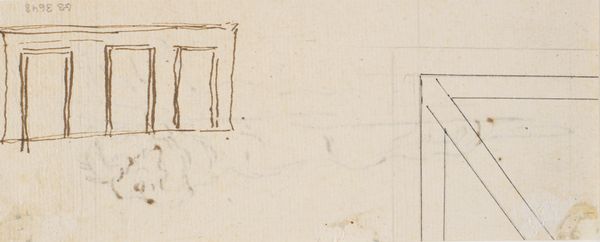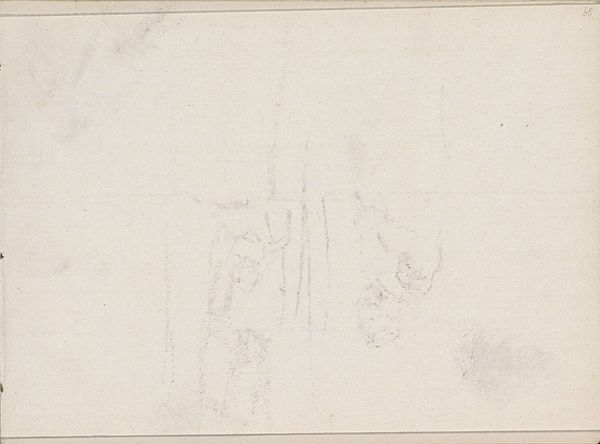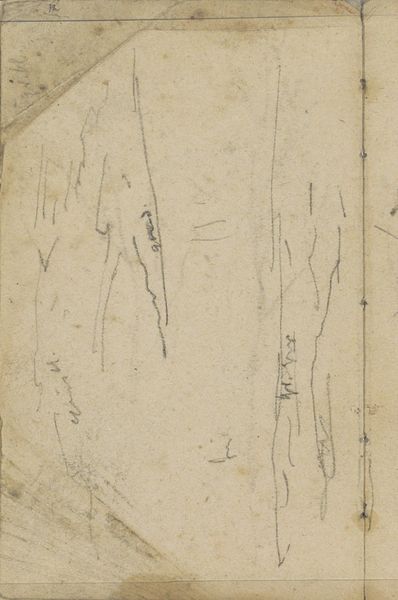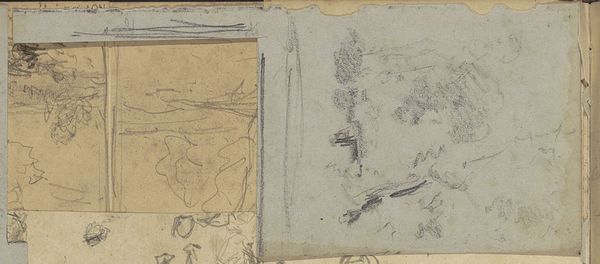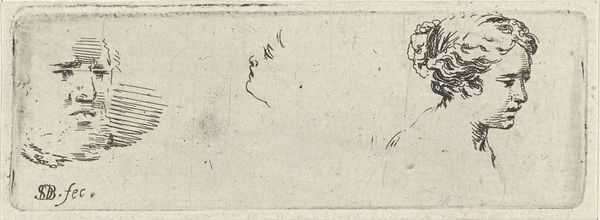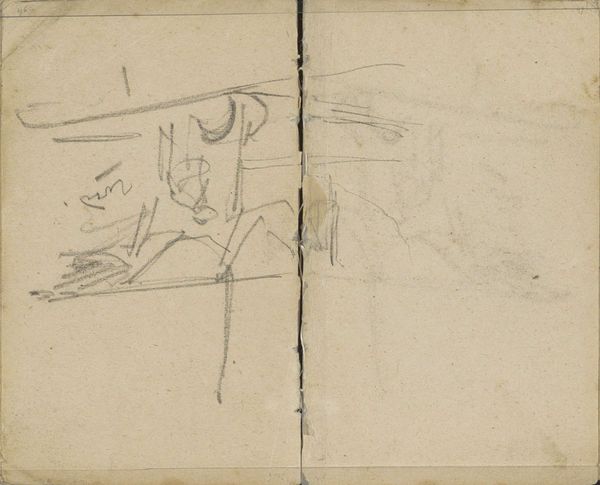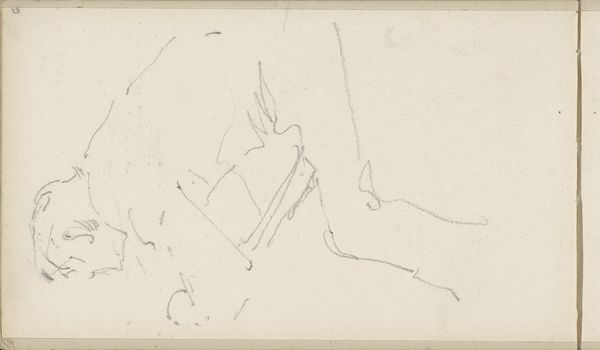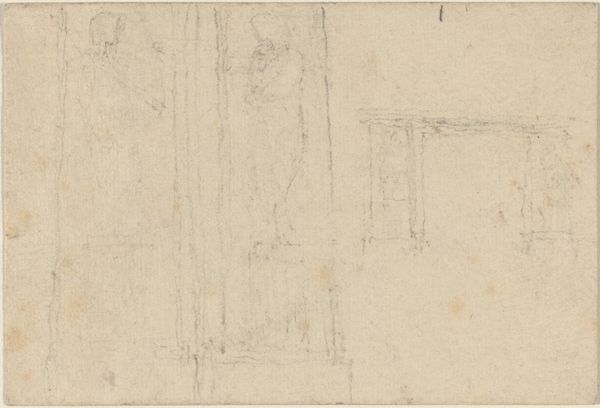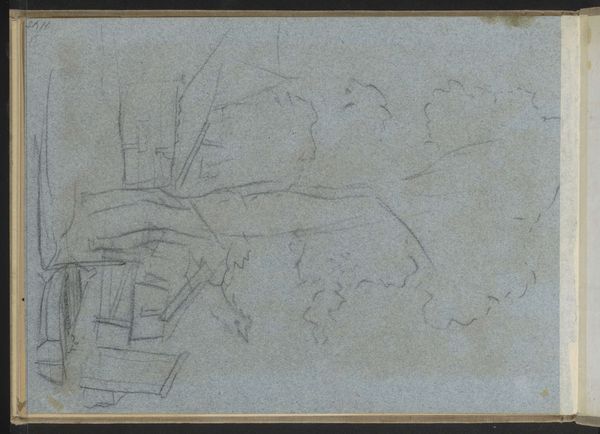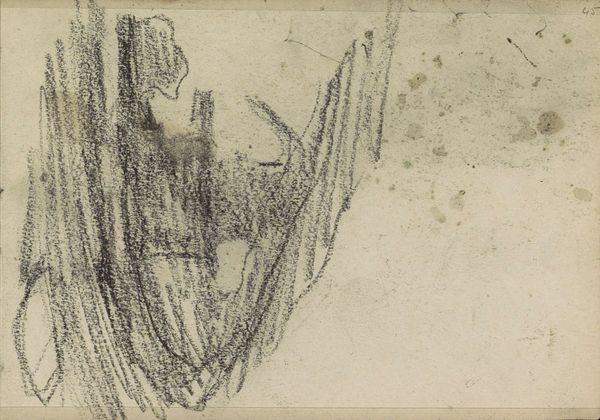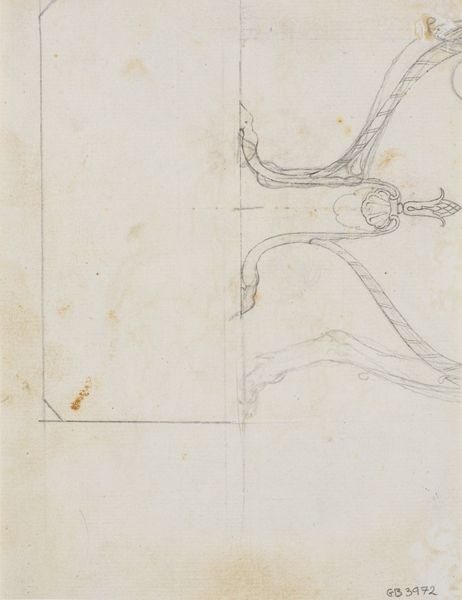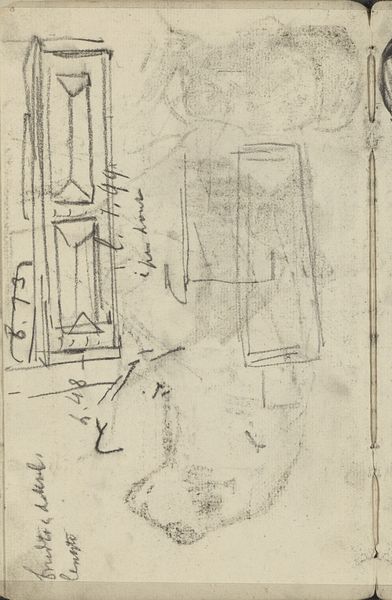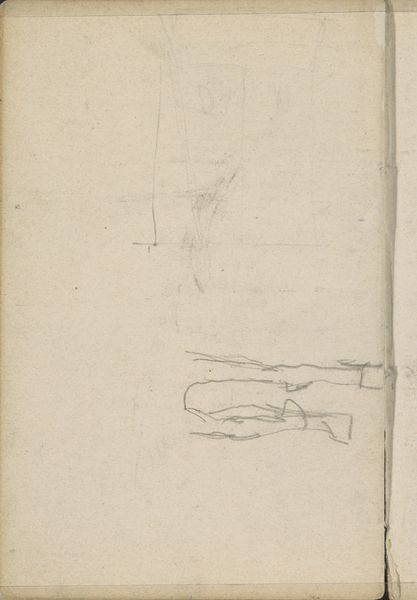
drawing, dry-media, pencil
#
drawing
#
landscape
#
dry-media
#
romanticism
#
pencil
Copyright: Rijks Museum: Open Domain
Editor: Here we have Willem Roelofs' "Eend," a pencil drawing from around 1846-1851. It has such a delicate feel. The duck seems almost like a fleeting thought, quickly sketched. What do you see in this piece beyond its immediate depiction? Curator: Beyond the duck itself, I see a potent representation of humanity's relationship with nature, especially within the context of 19th-century Dutch Romanticism. Consider how the swift, almost casual strokes might reflect a yearning to capture the raw, untamed essence of the natural world. It challenges the idea of nature as simply a resource. What sociopolitical messages can you see at play? Editor: That’s interesting. I hadn’t considered a sociopolitical message. The quick strokes seemed more about… immediacy, capturing a feeling. Is it reaching to say that the simplicity also conveys a sense of urgency regarding the changing landscape during that time? Curator: Not at all. Think about the rapid industrialization happening then. Artists like Roelofs were grappling with how to represent a world increasingly impacted by human intervention. The "Eend," seemingly just a simple sketch, can be seen as a quiet protest against the alienation from nature caused by such progress, echoing concerns about environmental degradation and loss of traditional ways of life. It uses an accessible image—the duck—to confront those larger issues. Do you think his choice to represent a landscape has meaning? Editor: Definitely! Framing it as a broader social commentary changes my perspective entirely. Seeing the Dutch landscape as something Roelofs appreciated for its beauty, and, more importantly, fought to preserve, is powerful. Curator: Exactly. Art isn't created in a vacuum. Examining the "Eend" through that intersectional lens—considering its historical moment, the artist's potential motivations, and the socio-political context—allows us to connect more deeply with the work and its continued relevance. Editor: I will never look at a simple nature sketch the same way. Thanks, that was so insightful!
Comments
No comments
Be the first to comment and join the conversation on the ultimate creative platform.
